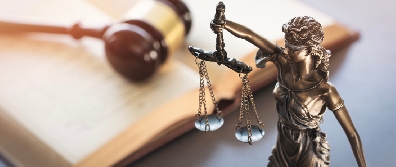Possible Reasons Why You Haven t Heard Back from Your Personal Injury Lawyer
As a San Francisco personal injury lawyer, I’ve seen and heard of all kinds of legal matters with personal injury cases. Your personal injury case can make you a bundle of nerves. A personal injury attorney should not only protect your legal rights but also take on your worry. But what happens when your lawyer goes silent? Your worry in the midst of silence can be excruciating. You should not feel alone when you have representation, and your lawyer should be talking to you regularly.
There are many possible reasons your attorney is not calling you. Understanding the following reasons for your attorney’s lack of communication can help you establish better communication moving forward and put your mind at ease.
When Your Attorney Doesn’t Contact You First
Your attorney is ethically required to inform you about important developments in your case without you having to ask. Different attorneys have different opinions about how often they need to contact you, and some can produce unnecessary stress. Understanding possible reasons why an attorney didn’t call you first can help you improve the relationship and calm your nerves
Sometimes Things Are Good and Uneventful
The beginning of a personal injury case can be a communication frenzy. Your lawyer may contact you multiple times to get files, signed releases, and accident details. From there, your attorney might contact professionals like repairpeople and medical providers to determine your current and future needs.
Once your attorney helps you establish a good treatment or repair plan with a professional, you may find yourself in the quieter monitoring phase of your case. For example, if your medical provider prescribed a long-term course of care to cure your injury, your attorney may be reviewing each medical record to check that your progress is appropriate. Your attorney may not contact you until the course of treatment ends.
The Discovery Phase of Your Case Can Put You in Limbo
Before your case goes to trial, your attorney engages in discovery. Discovery is the time when each party collects information about your case so they can determine what evidence to use at trial. Discovery can yield thousands of pages of evidence your attorney must whittle down before establishing a trial strategy to discuss with you. For the thousands of pages of evidence, your attorney may use less than 1% of those pages in court. If your attorney has been quiet during the discovery phase, ask their office for information about the important discovery deadlines in your case and whether they need additional information from you. This kind of communication can remind your attorney to regularly fill you in regarding case progress.
When Your Attorney Doesn’t Call You Back
Far more worrisome is when you call your attorney and they do not call you back. The California Rules of Professional Conduct require your attorney to promptly comply with your reasonable requests for information. Though your attorney is the legal expert, this is your case, and you should have regular access to information. Your attorney’s failure to call you back could indicate a fixable bad habit, or it could indicate a bigger problem you have to tackle quickly.
High Law Firm Turnover Can Harm Communication
When you hired your attorney, you probably met multiple people slated to help on your case. The legal team could include other attorneys, paralegals, and an assistant. Unfortunately, one of those people might leave before you resolve your case. The firm should let you know when someone you normally contact leaves the firm, but sometimes client communications slip through the cracks. You should request a card or contact information from each legal professional you meet. The more people you have to contact with questions, the less likely your communication will get lost.
Your Attorney Could Be Hiding a Problem
Unfortunately, sometimes an attorney doesn’t return your calls because they have made a mistake. Your attorney should send you copies of all important documents and pleadings they receive in your case. Your attorney should also review important deadlines with you. Regularly review the documents you receive and the deadlines you know to determine if something appears off. Reach out to your attorney and anyone else at the firm if you have concerns. If you still cannot receive a response from your attorney, you can involve their state licensing authority for resolution.
If you have a personal injury case but you don’t have representation, do your research to hire an attorney that doesn’t have communication issues. A good personal injury attorney should be passionate, experienced, organized, and highly responsive to your needs.















Comments